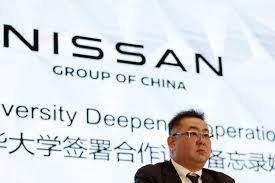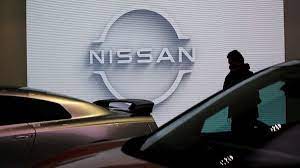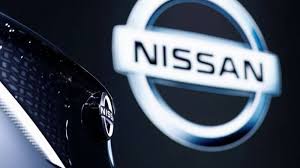In a bid to recapture market share in the dynamic Chinese automotive landscape, Nissan Motor Co. has announced an expansion of its research partnership with Tsinghua University.

The move, disclosed recently, aims to address the surge in electric vehicles (EVs) in China and the evolving preferences of Generation Z, born between 1995 and 2009.
Nissan, like other foreign car manufacturers, is striving to navigate the increasingly competitive Chinese market, where homegrown EV producers have gained significant ground.
The joint research initiative, slated to commence this year, will focus on understanding Generation Z’s automotive preferences and exploring the social responsibility of automakers in areas such as battery recycling, charging stations, and other EV-related issues.
This collaboration underscores Nissan’s commitment to adapting to shifting consumer behaviors and staying at the forefront of the rapidly evolving automotive landscape in China.
The surge in demand for electric vehicles caught many major auto companies off guard, leading to the rise of new Chinese competitors that have not only claimed substantial market share domestically but are also expanding into Southeast Asia, Europe, and other global markets.
Nissan, in particular, faced a significant setback, with sales in China plummeting by 34% in the six months from April to September of 2023 compared to 2022.

Masashi Matsuyama, the head of Nissan’s Chinese investment company, acknowledged the challenging market conditions in China during a news conference in Beijing.
In response to the evolving landscape, Nissan has outlined plans to develop 10 new-energy vehicles specifically for the Chinese market.
Among these, four will bear the Nissan brand, and the remaining six will be developed in collaboration with Chinese joint venture partners.
The company aims to launch its first Nissan-branded electric model in the second half of this year.
Nissan’s commitment to electrification extends beyond China, with recent announcements indicating a broader push toward electric vehicles.
In November 2023, Nissan, in alliance with Renault SA, revealed plans to retool a factory in Great Britain to manufacture electric versions of its two best-selling vehicles, emphasizing a global shift toward sustainable mobility.
The collaboration between Nissan and Tsinghua University is not new; they have been research partners since 2016.
The joint center established in that year has been dedicated to studying electric vehicles and autonomous driving, with a specific focus on the unique challenges and opportunities presented by the Chinese market.
This expanded collaboration marks a strategic move for Nissan to leverage academic expertise and insights to navigate the complex dynamics of China’s electric vehicle revolution.

As the automotive industry undergoes a profound transformation, partnerships like these underscore the necessity for innovation, research, and strategic alliances to stay ahead in the fiercely competitive global electric vehicle market, particularly in a key player like China.

